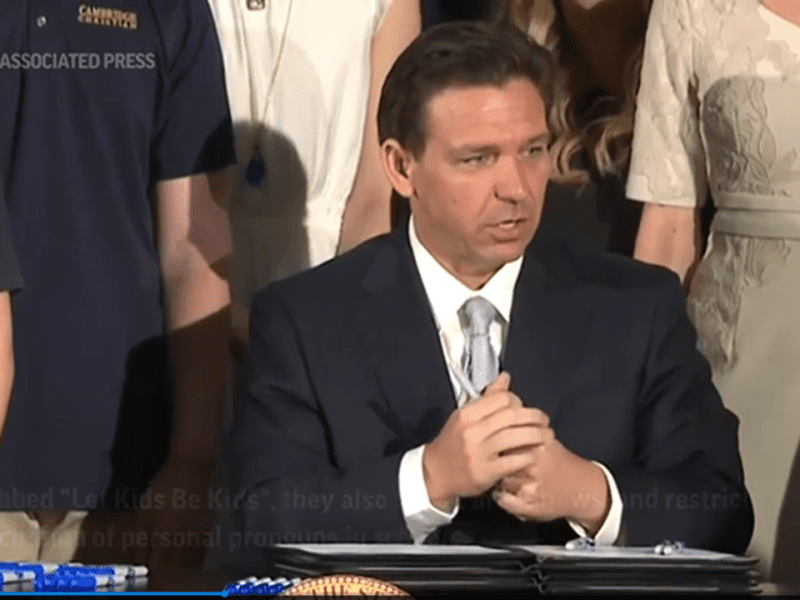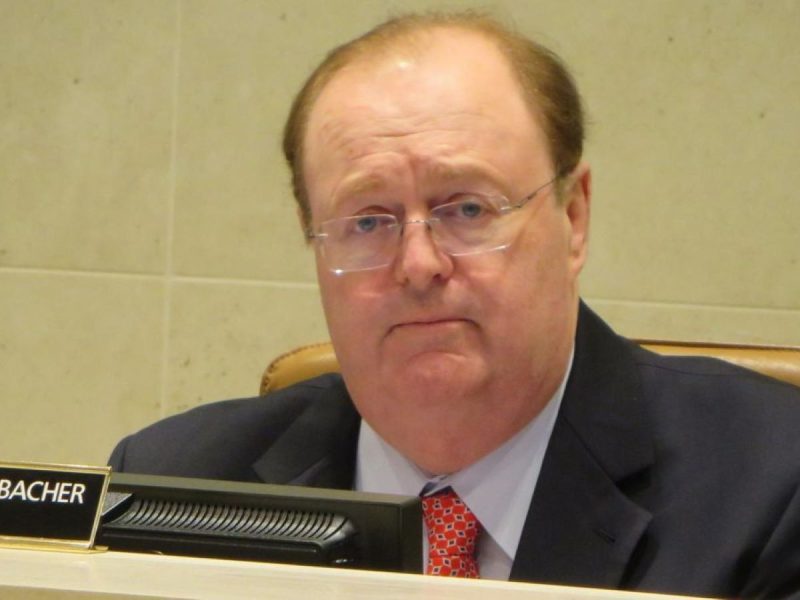
Proposed Florida rule would favor only one side in book challenges
It would allow the original objector to appeal to the state, but no one else. That’s not what the law says.
Tampa Bay Times | By Jeffrey S. Solochek | August 10, 2023
When Hernando County parent Kim Mulrooney learned her school board had removed the book “Marvin Redpost: Is He a Girl?” from her child’s school in June, she held out hope that a new Florida law might let her seek its return.
The law allows people to appeal to the state when they don’t agree with school district decisions on books. But the rule proposed to implement itlet Mulrooney down.
The recommended language says that parents who formally objected to specific books may seek relief from a special magistrate if they dispute a local action. But it makes no mention of any other parents, nor does it refer to other district residents who also are entitled under law to challenge school materials.
“I don’t think that’s right,” Mulrooney said of the proposal,which the State Board of Education will consider on Aug. 23. “Since it affects my kids, I should have a right to challenge the decision.”
That appeared to be the Legislature’s intent when approving the measure (HB 1069) in the spring. The law says if a parent disagrees with a school board’s action on challenged books and materials, “a parent may request the Commissioner of Education to appoint a special magistrate.”
Bill sponsor Sen. Clay Yarborough, R-Jacksonville, said nothing during floor discussion about limiting access to the magistrate process to objectors only. Leaders of Florida Freedom to Read Project, who pored over the documents and watched the hearings, said they had the understanding that appeals would be open to all sides.
“Now we see their plans with this bill,” said Stephana Ferrell, the group’s president. “Without the ability of parents to challenge a book’s unnecessary restriction, it will heavily weigh decisions in favor of the objector.”
Ferrell pointed to a recent dispute over the status of the children’s book “And Tango Makes Three” to illustrate why she sees a need for the appeals to be an option for people who want to keep materials on the shelves. The Lake County school district removed the book from its libraries amid concern the story about two male penguins raising a baby might run afoul of state laws limiting instruction on gender identity and sexual orientation.
The book’s authors and some families sued in federal court to get the book restored. As the case wore on, the district returned it to school libraries and filed a motion Aug. 4 saying it had misinterpreted the law.
In their own motion seeking dismissal of the case, lawyers for the state wrote, “the Florida Department of Education and State Board of Education … have maintained that ‘(t)he statute does not even arguably restrict library books.’”
If parents had the special magistrate option, they could avoid costly legal expenses when questioning a district’s action, Ferrell said. By limiting access to the appeal process, “it is putting the parental rights and First Amendment rights of some over the parental rights of all, and the First Amendment rights of students.”
State Sen. Tina Polsky, D-Boca Raton, grilled Yarborough during the session over several provisions in the bill, which became law on July 1. She said even if the proposed State Board of Education rule does not match the wording or intent of the legislation, questioning it will likely have little effect.
“To make the change we’d have to bring things to the Florida courts, and the Florida courts are so not in our favor,” Polsky said.
She contended that the Republican majority and governor’s office have created a chilling effect in the schools, as evidenced not only in decisions about books but also in recent discussions about AP psychology, the works of William Shakespeare and other contentious education issues.
“They just keep pointing and saying, ‘That’s not what the bill says,’” Polsky said. “But it doesn’t matter. It’s the effect of what the bill does.”
Meanwhile, parents with complaints about the content of certain books have indicated on social media that they plan to file several objections in September, after the State Board of Education considers the magistrate rule. That way, according to their posts, if local officials decide to keep the materials, they can turn to the state for another try.
Calls seeking comment from bill sponsor Yarborough, Senate President Kathleen Passidomo, House Education Committee chairperson Ralph Massullo and House Education Quality subcommittee chairperson Dana Trabulsy were not returned.





